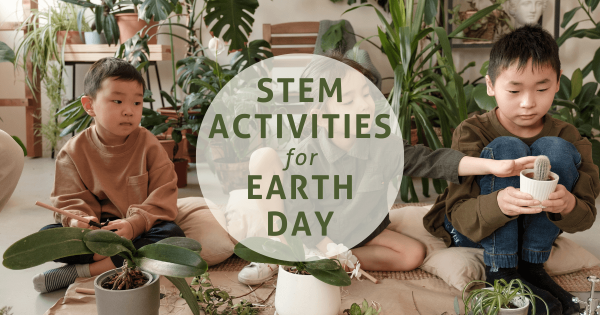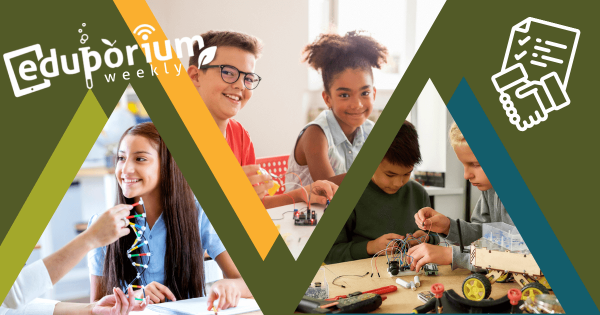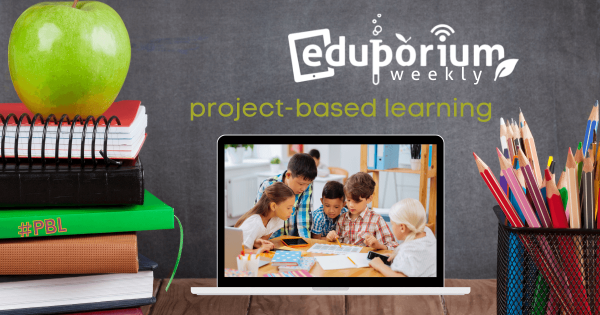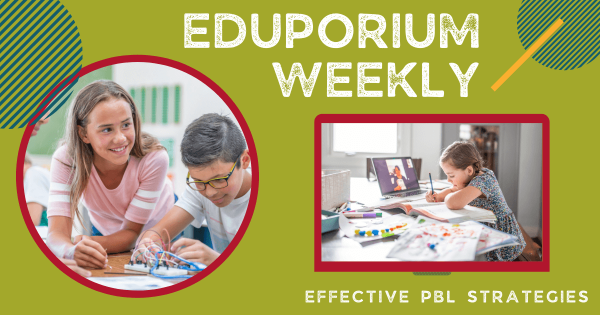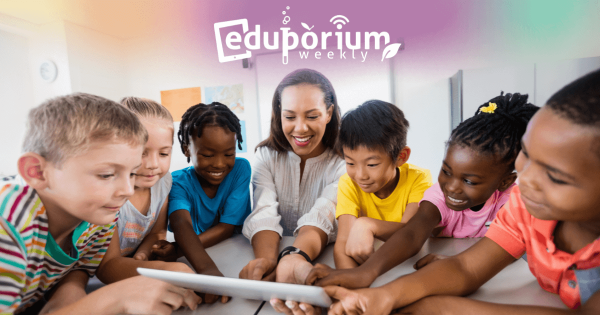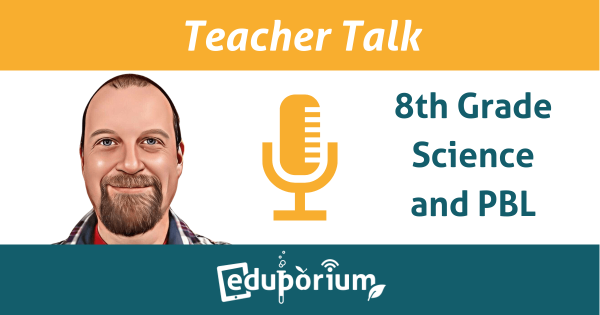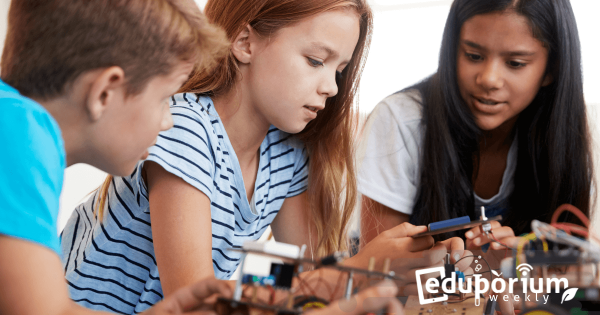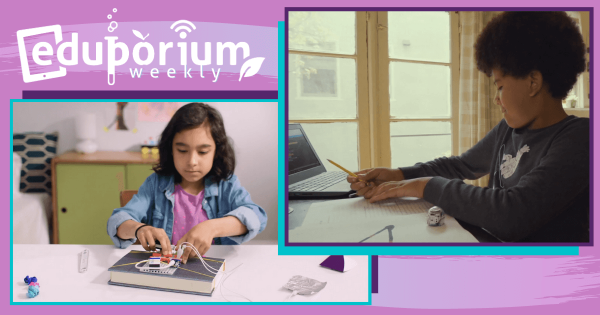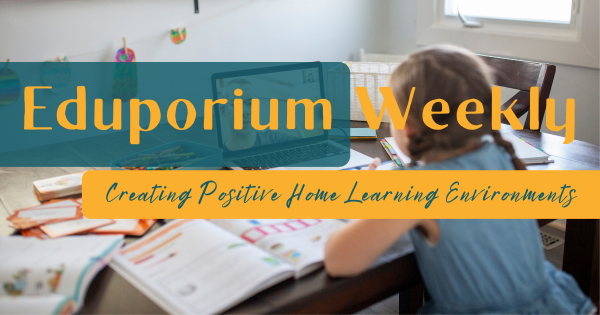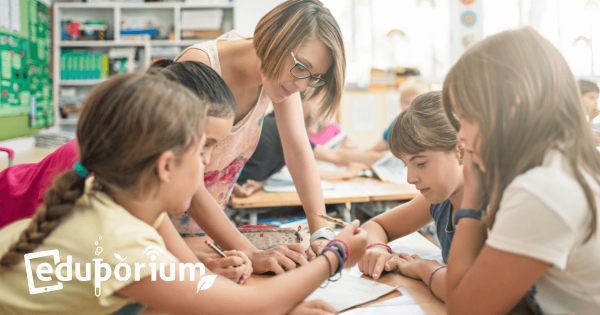Earth Day is the perfect holiday to apply the concepts of STEAM education and project-based learning. After all, the central goal of each opportunity is for your students to apply creative and innovative thinking while working to solve real-world community problems. Plus, Earth Day classroom activities can help all educators highlight the critical importance of going green.
Project–Based Learning
Today, project-based learning stands as a beacon of educational innovation, helping students to foster essential skills for the future workforce. As society involves increasingly complex challenges, PBL helps equip students with abilities to tackle real-world problems with creativity and resilience. That's often because, in PBL experiences, children have the opportunity to learn beyond their classroom walls. By engaging in hands-on projects that require critical thinking, collaboration, problem-solving, and a community-based approach to find solutions, students can develop deeper understandings of many core concepts while honing many of the skills that are in high demand in today's dynamic job market. And, it certainly doesn't hurt that various STEAM tools can help enhance these experiences. From 3D printing to learning with drones, PBL helps create new opportunities.
In an era in which hybrid learning is more prevalent, project-based learning boosts versatility and can transcend some classroom boundaries. With digital collaboration tools and virtual platforms, children can work with peers from around the globe, gaining valuable insights into diverse perspectives and also enhancing their communication skills. By immersing themselves in authentic, project-based experiences, students not only deepen their understanding of subject matter but also cultivate adaptability and resourcefulness needed to thrive in our world. Plus, with a focus on community-based collaboration, they can truly prepare for the future. As such, teachers can design projects that align with curriculum content and enable children to jump into real-world learning opportunities. In doing this, students can create connections to real-life skills and how working together benefits everyone.
-
Eduporium Weekly | Using PBL In Relationships And Connections
Since they are so group-oriented, project-based learning experiences truly help students develop more than academic skills. They often learn to build up connections with their classmates, their communities, their teachers, or their work. And, this also helps kids learn to take greater pride in what they are doing, knowing they can positively impact others’ lives and their own.
-
Eduporium Weekly | Rewards Of Cross-Curricular PBL
Discovering connections through active experiences is a chief cornerstone of PBL and helps students establish authentic feelings for their causes. As such, knowing the impacts these connections can have among children is key for the educators who are leading them. And, this is especially true as they leverage them across the curriculum to connect different subjects.
-
Eduporium Weekly | Strategies For Effective PBL Instruction
Project-based learning, as you might know, is a quite effective approach to instruction that’s often tied to increased community involvement and active collaboration among students. So, we’re exploring what may help teachers get PBL right, tips for implementing successful projects, and ideas for how to best leverage EdTech tools to generate ideal results.
-
Eduporium Weekly | Culturally Responsive Teaching
We now have so many unique teaching styles and strategies for effectively communicating curricular content to your kids, including teacher-centered, student-centered, self-paced, competency-based, and even inquiry-based models among others. Then, there is culturally responsive teaching, which involves shifting instruction and language for kids from different cultures.
-
Teacher Talk | 8th Grade Science And PBL
Through project-based learning, children get to see concepts in action and build up a bigger variety of vital SEL skills like teamwork and responsibility. Science teacher Jeremy Jorgensen knows all about these benefits. For this new Teacher Talk feature, we discussed how he incorporates PBL activities in the classroom and the skills kids develop from hands-on experiences.
-
Eduporium Weekly | Getting Back into PBL
PBL units can be incorporated into just about any subject. Students can take part in projects, design simulations, and work together to better their school community or actual community. As plans for the 2021-22 school year are developed this summer, PBL could be a top strategy for ensuring access to game-changing learning opportunities.
-
Eduporium Weekly | PBL in Remote Learning
PBL involves students working as part of a group most of the time on a community-focused project designed to affect authentic change. You can see how this might be tough to do in a remote environment, but a lot of progress has been made. It takes true teamwork, but PBL IRL (in remote learning) is certainly a possibility.
-
Eduporium Weekly | Positivity In Home Learning Environments
We’ve talked an awful lot about SEL in remote learning, focusing mostly on checking in on our students and teachers. One other important component to social-emotional learning, however, now involves creating the right kinds of environments for children to reconnect with some of the things that have been missing for them all throughout the pandemic.
-
Eduporium Weekly | Making PBL More Meaningful
When kids are sitting back, being spoken to, and completely passive about the content they’re absorbing in the classroom, how does that benefit them? They need active experiences and hands-on problem solving in order to become Future Ready. They need project-based learning and they need it to be of high quality.




